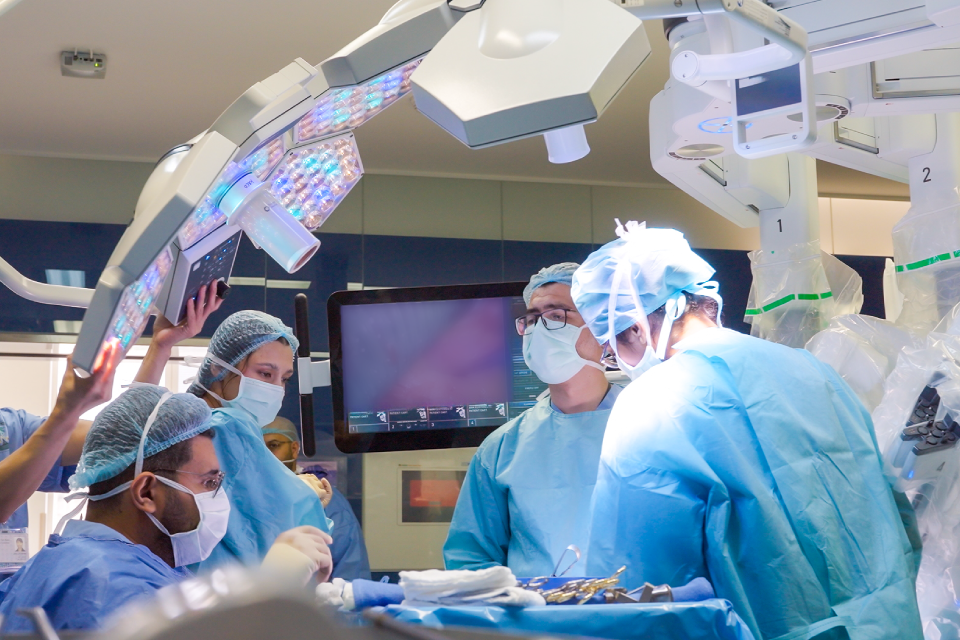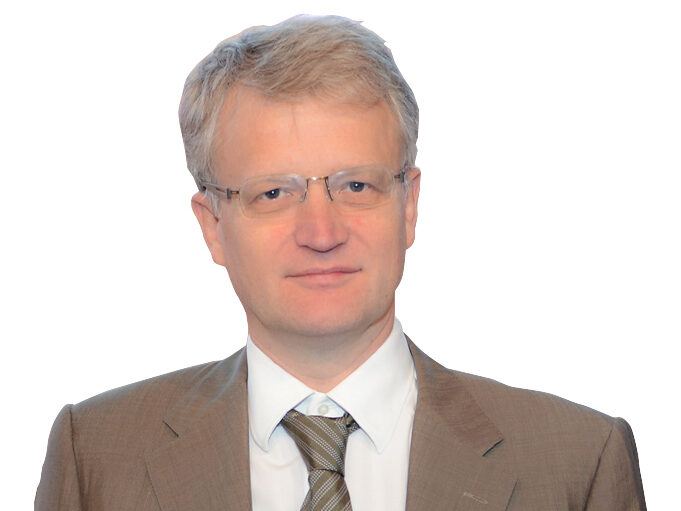Saudi hospital achieves first fully-robotic paediatric liver transplant

The first application of an advanced robotic surgery system to save the life of an eight-year-old child via a left-lobe liver transplant has been hailed as a ‘remarkable demonstration of surgical innovation’ by the clinical team who utilised the technology.
The procedure, conducted at the King Faisal Specialist Hospital & Research Centre (KFSHRC) in Riyadh, Saudi Arabia, involved extraction of the left lobe from a living donor and fully transplanting it into the child without any direct human intervention. The unique robotic surgical approach significantly minimised the size of surgical incisions and accelerated the post-operative recovery process, allowing the child to be discharged within two weeks instead of the typical month-long hospital stay for similar transplants.
Professor Dieter Broering, Executive Director of the Organ Transplant Centre of Excellence at KFSHRC and lead surgeon on the case, said: “For the first time, we have been able to adapt robotic surgical techniques applicable only to adults and achieved a highly positive clinical outcome in the paediatric setting”.
“Numerous challenges were overcome to enable this surgery, not least a redesign of techniques to suit the small stature of the child in a confined space, requiring us to meticulously adjust the entry sites for the robotic tools and ensure a maximum level of patient safety. We look forward to sharing the details of this outcome with international partners and colleagues as part of a truly global programme to advance and widen the availability of robotic surgical techniques to the children who will benefit, in line with the KFSHRC commitment to sharing of insight.”
Transplant surgeons believe the successful conclusion of this operation introduces a ground-breaking global model for expanding the use of robotic surgery in paediatric care across multiple surgery types.

Professor Broering added: “There is likely an under-appreciation of the complexities and challenges inherent in transforming adult transplant surgeries of this nature for use in children. The fact KFSHRC has not only overcome these hurdles but enabled a young child’s life to be saved with an astonishing recovery time, indicates the Middle East region is now emerging as a true hotbed of forward-thinking, groundbreaking surgical technique. This commendable clinical team is now paving the way for future development of child-specific robotic surgical systems.”
In recent years KFSHRC has become a premier destination for both international patients and healthcare professionals who seek the opportunity to receive, or play a role in performing, advanced procedures utilising its medical innovations, cutting-edge technologies and expertise in rare disorders.
The hospital previously performed the world’s first fully robotic heart transplant and the world’s first robotic liver transplant, advancements that garnered attention from medical professionals around the world. These breakthroughs reflect KFSHRC’s commitment to pioneering innovative medical solutions and delivering world-class specialised healthcare. The surgery in this case also represents a further breakthrough as part of the Saudi Vision 2030 Health Sector Transformation Program, a key initiative launched by H.R.H Crown Prince Mohammed bin Salman, Prime Minister of the Kingdom.
KFSHRC has been ranked first in the Middle East and Africa and 15th globally in the list of the world’s top 250 Academic Medical Centres for the third consecutive year and recognised as the most valuable healthcare brand in the Kingdom and the Middle East, according to the 2025 Brand Finance rankings. Additionally, KFSHRC was included in the World’s Best Smart Hospitals list for 2025 by Newsweek magazine.
For more information, please visit https://www.kfshrc.edu.sa/
